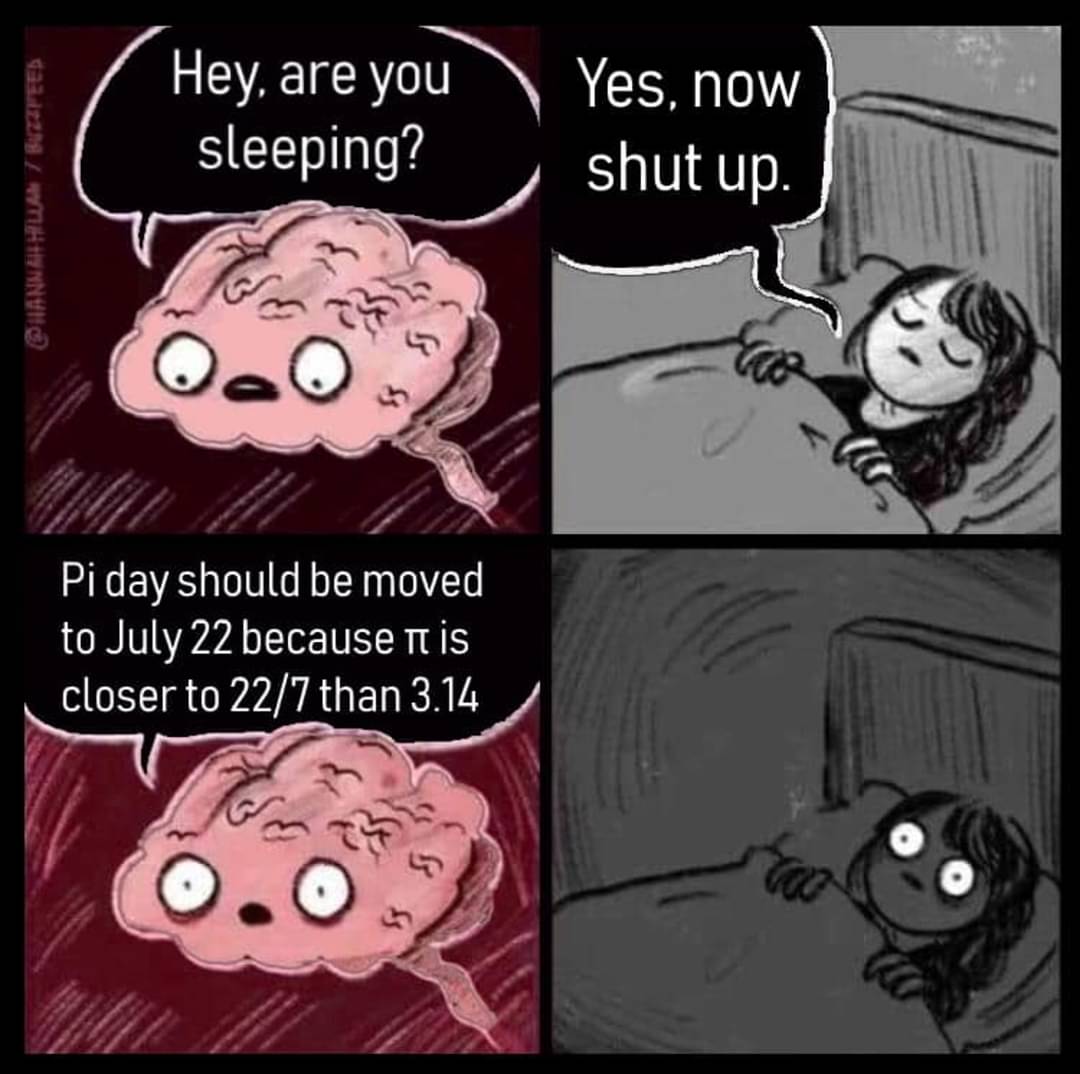this post was submitted on 22 Jul 2024
673 points (94.8% liked)
Science Memes
12345 readers
2422 users here now
Welcome to c/science_memes @ Mander.xyz!
A place for majestic STEMLORD peacocking, as well as memes about the realities of working in a lab.

Rules
- Don't throw mud. Behave like an intellectual and remember the human.
- Keep it rooted (on topic).
- No spam.
- Infographics welcome, get schooled.
This is a science community. We use the Dawkins definition of meme.
Research Committee
Other Mander Communities
Science and Research
Biology and Life Sciences
- [email protected]
- [email protected]
- [email protected]
- [email protected]
- [email protected]
- [email protected]
- [email protected]
- [email protected]
- [email protected]
- [email protected]
- [email protected]
- [email protected]
- [email protected]
- [email protected]
- [email protected]
- [email protected]
- [email protected]
- [email protected]
- [email protected]
- [email protected]
- [email protected]
- [email protected]
- [email protected]
- [email protected]
- !reptiles and [email protected]
Physical Sciences
- [email protected]
- [email protected]
- [email protected]
- [email protected]
- [email protected]
- [email protected]
- [email protected]
- [email protected]
- [email protected]
Humanities and Social Sciences
Practical and Applied Sciences
- !exercise-and [email protected]
- [email protected]
- !self [email protected]
- [email protected]
- [email protected]
- [email protected]
Memes
Miscellaneous
founded 2 years ago
MODERATORS
you are viewing a single comment's thread
view the rest of the comments
view the rest of the comments

Coming from somewhere with the format the other way around, we do indeed say "23rd July" without all that extra fluff. So exactly the same efficiency wise. We simply count days like we'd count other stuff. For example I definitely didn't had my coffee fourth just now.
But "Coffee fourth"/"fourth coffee" and "23rd July"/"July 23rd" are different things. I don't think it's a good comparison.
With the coffees you are counting how many you've had. The thing being counted is explicitly stated in the phrase.
With dates, you are not counting the number of July's. This isn't my 23rd July, but the 23rd day of this July. The thing being counted is only implied by colloquial understanding.
So yes, "coffee fourth" doesn't work, but that doesn't have much bearing on how to say a date in my opinion
You're right, but the same must be said for July 23rd. Both are abbreviating "day in the month of july" to a simple mention of the month.
At the end of the day both work, both are equally efficient, and simply come down to habit.
Yeah, that's my thinking too. English, and language in general, is very fluid. Different regions will have different colloquialisms, and even different dialects of the same language. So long as we all understand what is meant does it really matter all that much how it was said?
The funny thing is that both "July twenty-third" and "the twenty-third of July" are common in the US.
“Cup of coffee” is a mess of a phrase if you start to actually think about it. In English, it’s genitive; in German, it’s accusative; in Spanish, it’s nominative.